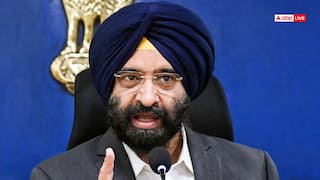Explorer
RBI extends RTGS timings from June 1, transactions allowed till 6 pm from next month; Here's all you need to know
The extension in timings comes with additional time varying charges per outward transaction charged on top of flat processing charges for RTGS by different banks.

The Reserve Bank of India (RBI) has extended the transaction window for Real Time Gross Settlement (RTGS) for customers. (PTI)
New Delhi: The Reserve Bank of India (RBI) has extended the transaction window for Real Time Gross Settlement (RTGS) for customers. Effective from 1st June 2019 onwards, RTGS transactions could be done till 6pm instead of the current 4:30pm closing window. The transaction window going forward for RTGS will be from 8am to 6pm for customers, while the applicable initial cut-off for interbank transactions will be 7:45pm. “It has been decided to extend the timings for customer transactions (initial cut-off) in RTGS from 4:30 pm to 6:00 pm” read the notice issued by RBI to this effect on Tuesday, 28th May 2019. The extension in timings comes with additional time varying charges per outward transaction charged on top of flat processing charges for RTGS by different banks. From 1st June 2019, customers will be required to pay the following time varying charges for RTGS transactions as per three slots viz: 8am to 11am – Nil 11am to 1pm – Rs.2 + GST 1pm to 6pm – Rs.5 + GST After 6pm – Rs.10 + GST In India, there are three popular modes of online transactions viz Real Time Gross Settlement (RTGS), National Electronic Fund Transfer (NEFT), and Immediate Payment Service (IMPS). If you are confused as to which digital mode to use for your online transactions, then here’s a quick comparison between RTGS vs IMPS vs NEFT on top three factors that can help you decide which option to choose when: 1. Amount of Fund Transfer: What differentiates RTGS from IMPS or NEFT is that it lets you transfer large funds of minimum Rs.2,00,000 and above. On the other hand, cash-remittances upto Rs.50,000 can be transferred via NEFT though there’s no upper limit or lower limit on online NEFTs. The upper limit of transfer of funds via IMPS is Rs.2,00,000 per transaction. A consumer or company can safely make large transactions in seconds via RTGS. While for small and instant transactions, IMPS is the right choice. 2. Time taken to Transfer Funds: In RTGS, the transaction is done on a real-time basis and funds are credited instantly during the RTGS window (8am to 6pm from 1st June 2019). However, banks do not process RTGS transactions on second and fourth Saturdays and all Sundays of the month, besides bank holidays and public holidays. Similar rules apply to NEFTs, wherein fund transfers can be done only during banking hours. The transaction timings are 8am to 6:30pm (Monday to Friday) and 8am to 1pm (Working Saturdays). However, unlike instant fund transfer in RTGS, funds transferred via NEFT are credited in half-hourly batches between 8am to 7pm. A total of 23 settlements are done during the day since 2016. For IMPS, funds can be transferred anytime of the day or night, on weekdays as well as weekends, on national plus public plus bank holidays too. In short, Immediate Payment Service aka IMPS is available 24x7, 365 days of the year. 3. Cost to Transfer Funds: For RTGS, the processing charges range from Rs. 0 to Rs. 25 plus GST for transactions between Rs.2,00,000 to Rs.5,00,000. Whereas for transactions above Rs.5,00,000, the processing charges can go up to Rs.61 plus GST. For IMPS, the processing charges range from Rs.0 to Rs.15 plus GST. For NEFT, banks charge anywhere from Rs. 0 to Rs. 25 plus GST. If you are not in a rush to transfer funds immediately, then transactions above five lacs done via NEFT can save you from paying hefty processing charges.
Follow Breaking News on ABP Live for more latest stories and trending topics. Watch breaking news and top headlines online on ABP News LIVE TV
Read more






































